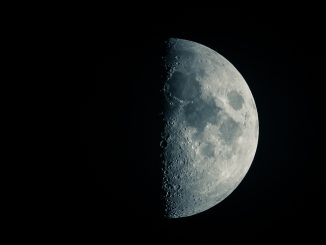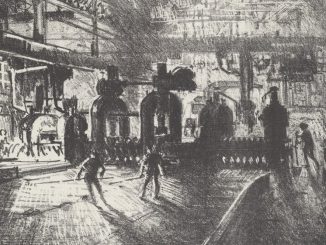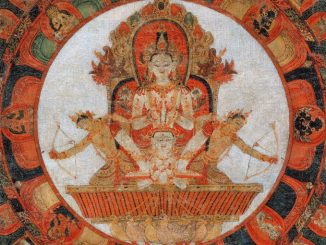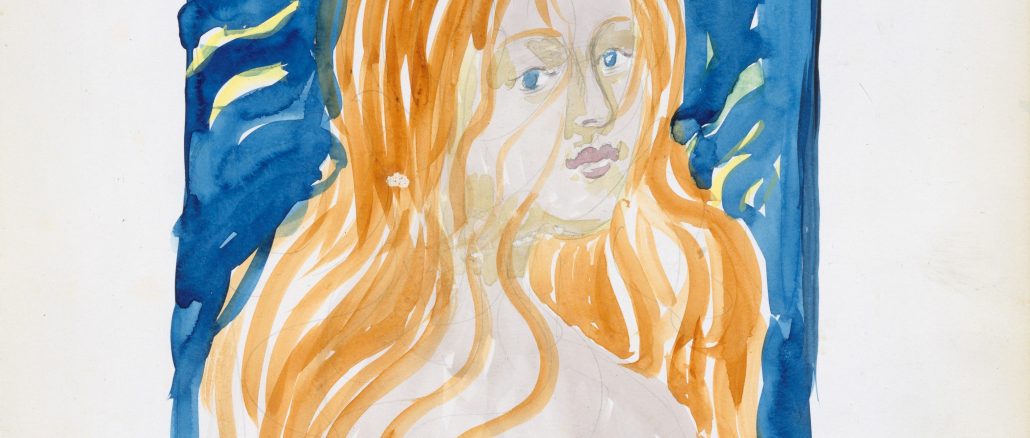
Appalachia is a heritage I both wanted to understand and to escape. A place filled with opioid abuse, the remnants of poverty and coal mining culture, and somehow also, the filthy rich.
You slurred about how you loved yourself while you hung from a balcony, two stories in the air, staring at the frozen ground beneath you.
It was a night drenched in booze, somewhere in Kentucky, sometime after midnight. You smelled of tequila shots, cigarettes, and marijuana. You wore a dress with flowers that dotted your many curves and a beanie that gave you a bohemian vibe. Your hair was loose and matted from flipping it around at the Irish pub when we were hanging out with those people we used to know before they chose heroin over life. Your brown locks—a million highlighted and salon-enhanced hangman’s nooses—curled around your throat, twisting into a knot.
“I love myself too much.”
That’s what you said. You said you didn’t want to kill yourself.
The stars were loud above that residential street, lined in tall trees older than us by three lifetimes. The winter trees mourned their leaves and called for them to return. The people were sleeping. The road was filled with historical homes worth way more than the mobile home I grew up in—and the property it was tossed on—the flimsy structure eventually abandoned and forgotten.
To you, you with the death wish, I said, “Stop being stupid. You’re not going to jump.”
You only repeated, “I love me.”
For me, this was Kentucky. My hometown. The new mid-south. A heritage I both wanted to understand and to escape. A place filled with opioid abuse, the remnants of poverty and coal mining culture and somehow also, the filthy rich. I grew up half-joking about the barns the thoroughbreds lived in.
The racehorses lived like royalty. How I lived in my formative years is still undefined in my mind—it’s an understanding I still reach to have—you could maybe call it white trash. In the summers, our trailer was infested so profoundly with fleas, my feet were red and blistered with their bites—one foot, one white sock, blackened in a matter of seconds with those biting bugs.
Underprivileged me, I’m not the one who hung above the cement, teasing death. Though life had told me I was less than, though I struggled to find meaning and context, though I too hated myself because the world had told me that standing in line for free milk and government-issued EBT cards for groceries rendered me useless—I’d never played death like a fool.
Death is savvy, a heartless asshole that makes decisions willy-nilly and hands down verdicts without rhyme or reason.
At the time? You, my friend, treated suicide like an easy impulse buy and I likened death’s persona to God, really. Death and Jesus, both of you fuckers … you stay over there. I’ll be over here. I don’t want either one of y’all’s help, thank you very much.
You, however, my dear wealthy friend, who treated the balcony railing of that old beautiful building like the playground we grew up swinging on—you probably still think that you matter. You do, of course. To me, to the people who know you. I mean more in the universal sense. You believed this moment registered in the grand scheme of things. That though we are invisible from outer space—hell, even from a damn airplane—you were important enough that if you did happen to die because you were morbidly goofing off, the world would care.
You seriously believed that.
There are more people in the world who don’t know your name than who do. They won’t ever know your name, let alone have an opinion on or a reaction to your death.
You don’t get it, though. Because you’ve always mattered to the world you interacted with. Nobody discounted your medical emergencies because your insurance was provided by charity. Nobody stared at you because your sweet, kind mother didn’t appear presentable, because her large boobs protruded from her low-cut top. Nobody judged you and your food as it slid down the conveyer belt because the card you slid in the reader was from the government.
You’ve never measured your life in the remaining balance on that food stamp EBT card. You weren’t tucked in under ten blankets and still cold in the winter because your heater broke and your family didn’t have the money to repair it. Your memories are filled with dolls and tea parties. If your kid fantasies were real life, I would have been the one bringing you and your friends food. Serving you.
Old money. A heritage of pharmaceuticals. Trust funds. Money was everywhere, tucked away in bank accounts by white people who generally cared enough about the places their sperm landed, about the uteruses that flourished with their babies, they planned. For you. They planned with dollars and decimals.
If you slipped and fell on your head, and nobody put you together again, yes—your family would have cared. Your small corner of this big big world would have mourned you, the newspaper might have even written about you.
In that boozy moment, you were a mediocre existentialist. You questioned your life and your purpose because of the sorts of things I wish I was privileged enough to be concerned about. I think you did love yourself too much, to be honest. Because if you realized you didn’t matter, that with death, eventually, you’d fade away, you would have been with me, on the correct side of the rail.
I rarely had the impulse to stand like that, to take a risk, because if something went wrong but also right, if I fell but lived, I’d only have expensive medical bills I couldn’t pay.
You made me hate myself more by hating yourself. The night you did that to me, it was cold. I wasn’t wearing a coat, but the coat of our old friend, Tucker, a once star football player who let himself go. That friend had a beard, and he didn’t shower as much as he used to, he drank a lot and did a bunch of other drugs, too, and every time he got drunk, you know how he brought up his brother.
His big brother was named after a character in the Bible, and I don’t remember which one. You might know. His brother was wild and he kicked Tucker’s ass all the time when they were kids.
When we were around sixteen, remember how Tucker’s brother wrapped his motorcycle around a tree out in front of our high school? The EMT told the kids who pulled the brother out of the bushes he would have lived if they’d only left him alone—that statement I’ve always objected to. He had no way of knowing that for sure.
Because the kids that pulled that guy from a tree? They live with guilt over that and will forever. Honestly, that’s probably why that guy who graduated a few classes above us drank himself to death, died with his fingers down his throat. What was his name, again? Do you remember?
The night you, my childhood best friend, flirted with suicide, we were all staring up at stars that shivered against the blustery night. Frost was collecting on the grass below us, and it caught the light of headlights when a few cars drove by.
Just before you stumbled over the rail to hang yourself, Tucker and I were sharing a cigarette. You—the girl who loved herself too much?—were sipping from a bottle of old, sour beer and sitting in a rocking chair. You were mad because you thought you were fat, and because the guy you’d wanted to go home with was inside, pounding another girl, forty-something pounds lighter than you.
Bet you don’t care about that anymore, do you? Bet.
You were and are profoundly, deeply, soulfully beautiful and wild. Smart. Articulate. Savvy. Creative. Sexy. You didn’t and don’t see that about yourself anymore. Life, mistakes, one too many penises at one too many college parties, privilege gone wrong—it all rendered you a shell of who you once were. Or so you thought and felt.
I’d given up trying to make you feel awesome. The truth was, those days, we all felt like shit.
“He would tell me to stop being such a pussy,” Tucker said, talking about his dead brother. He took my beer out of my hand, took a long swig of it, and numbly blinked at me. “He would tell me to get a job. Stop being such a pussy. Get a job. Live my life.”
I nodded. “If he were here, he would definitely tell you that.” I peered into the air next to him, staring at the empty space where his brother’s head would have been, had his ghost been standing there. We’re superstitious in the Kentucky foothills, a side effect of Appalachia. “I’m sure of it.”
“Do you think I live my life?” he asked. He passed me the beer and took the cigarette from my hand. I watched him suck at the end of it, as the hot fire at the end of the stick lit up, a glowing light at the end of a bright white tunnel we’d never reach the end of.
I shook my head. “I think you do the best you can.”
Comparatively, given the depth of Tucker’s musings about death and loss versus the purported reasons you were moping and smoking, I’m still not sure why you crawled over the balcony railing. Maybe it went deeper than the things you bothered to complain about.
“Oh shit,” Tucker hissed.
“I love myself too much to kill myself,” you said, simply.
For a minute, no one spoke. The neighborhood dogs barked, a siren wailed, the television inside muttered about the woes of fame and fortune.
You did not distinguish whether you felt Freudian or chemical or familial self-love.
“You’re about to be gravity’s bitch,” I said, the world slipping around on the bubbles of too much beer. “Knock it off.”
You swayed and the fence groaned.
Alcoholism. It had once directed your car into a tree on a country road, but the cop who found you let you go. I never asked why, and you never elaborated. Drunk driving was dangerous, but also a privilege I didn’t have. No mistakes. No room for a misstep. This one time, I slipped into your car, knowing you were toasted, and I waited to see if we made it home because at the time, frankly, I didn’t care what happened to us. I remember squealing tires, but no broken glass and never any blood.
We lived that time and all the times that have led up to now.
“You don’t think I love myself?”
“No.”
“Do you think I’m pretty?”
“Yes.”
Tucker flicked the cigarette into the street. It fell for what seemed like forever and sparked. He offered his hand to you and it was that simple. Tucker helped you over the fence, and you fell coming back over, fell onto the safe side of the fence, falling to the floor of the patio with a thud and a prolonged whine—owwwwfuck—and then came the tears that might have reeked of vodka, tequila, and nicotine, had you sniffed them. Snorted them like drugs.
You said, “That hurt.”
For real, though. It did, it does, it always will, but we move and we are moving and we will always be moving forward because, as my grandpa always said, the alternative ain’t that great, or he said something like it. We are all mediocre and that’s the point and maybe someday, we’ll be cool with it. In the meantime, we’re just your basic, boring white people. Me, I’m your basic white trash, grown-up.
Mediocrity. Mid-south style. I’ll take it with a shot of Bourbon. Never top shelf. Maybe I’ll sleep with the horses tonight. That’d be living in the lap of goddamn luxury.
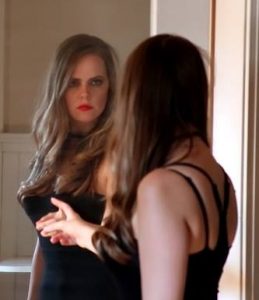
REBECCA KIRSCHBAUM is a writer with a heart for Appalachia and the poor. Her work has been called modern Southern gothic, boundary-bending and compared to that of Flannery O’Connor. Her work has been published by Still Point Arts Quarterly and The Furious Gazelle, as well as seen on stage in San Antonio and San Diego. She is the recipient of a Write Well Award. She often writes to represent the underprivileged and a culture of poverty that is frequently left out of media. Those human beings are her people. She writes so they, too, have a voice.
Featured image: Maurice Brazil Prendergast, “Large Boston Public Garden Sketchbook: A nude woman with red hair,” watercolor over pencil, bordered in pencil and watercolor, ca. 1895-1897, Robert Lehman Collection, 1975, The Metropolitan Museum of Art.
